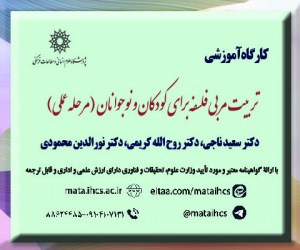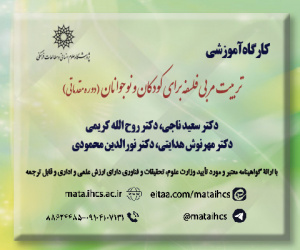پیاده سازی رویکردی نسخ مشروط در استخراج اصول حکمرانی با محوریت سوره برائت در اندیشه آیت الله العظمی خامنه ای (مدظله العالی)
آرشیو
چکیده
مفهوم حکمرانی به عنوان یکی از مفاهیم توسعه غربی، نیاز به بازآفرینی در ساحت گفتمان اسلامی دارد. در ادبیات دینی حکمرانی را می توان ارائه طریقی دانست که ایصال الی المطلوب را در پی خواهد داشت. ازآن رو که در فرایند حکمرانی برخی تغییرات اجتماعی اقتضای تغییر احکام اجرا شده را دارد، می توان با مراجعه به منابع دینی، شرایط آن را شناسایی و در نظام جمهوری اسلامی جهت هرچه حکیمانه تر شدن فرایند حکمرانی به کار بست. از سوی دیگر در مراجعه به بحث نسخ در علوم قرآنی، گزاره های مفیدی را جهت نیل به این هدف می توان یافت. مبنای نسخ مشروط که بیانگر تغییر احکام در پی تغییر شرایط و قوت گرفتن احکام منسوخ (به معنای عام) درصورت تحقق شرایط اجرای آن حکم است، به طور ویژه ای با هدف مذکور هم خوانی دارد. در این مقاله به «روش کتابخانه ای» و با محوریت تفسیر سوره برائت آیت الله خامنه ای، به بررسی آیات ناسخ و منسوخ پرداخته شده و با استخراج سه زنجیره آیه و بررسی سیاق آیات و فضای نزول آن ها برخی اصول حکمرانی استخراج شده است. این اصول ناظر به سیاست گذاری و تنظیم گری روابط میان مسلمانان و دشمنان در بُرهه های ضعف و قوت مسلمین و شرایط تحقق برائت نهایی از مشرکان است.Application of Naskh in Extracting Principles of Governance with Focus on Surah At-Tawbah in Thoughts of Ayatollah Khamenei
The concept of governance, as a western-driven normative concept, needs to be recreated in the Islamic discourse. In religious literature, governance can be considered as a path towards good governance. Since changes in a society in the process of governance call for changes of the implemented rulings, it is possible to identify the conditions by referring to religious sources and apply them in the Islamic Republic system to make the governance a wiser process. On the other hand, by referring to the discussion of Naskh (abrogation) in Quranic sciences, useful propositions can be found to achieve this goal. The basis of conditional Naskh, which expresses the change of rulings following a change in conditions and the strengthening of abrogated rulings (in a general sense) if the conditions for the implementation of that ruling are met, is particularly compatible with this goal. In this study, via the library method and with focus on the interpretation of Surah At-Tawbah by Ayatollah Khamenei, the abrogator and abrogated verses have been examined and by extracting three chains of verses and examining the context of the verses and their revelation circumstances, some principles of governance have been singled out. These principles address issues such as policy-making and regulating ties between Muslims and enemies at different junctures as well as the conditions for the realization of final Bara'at from Mushriks..



